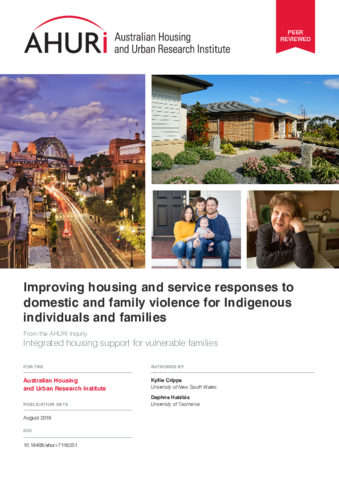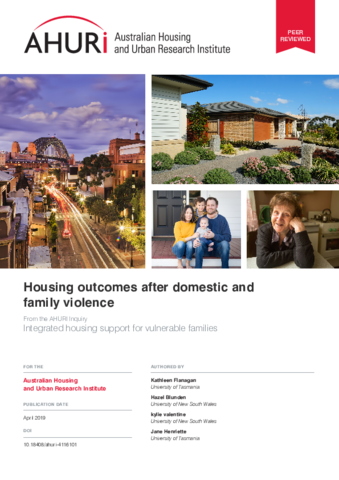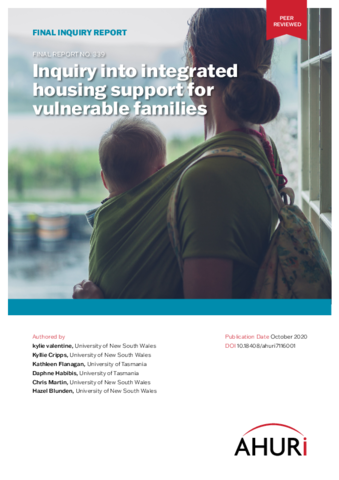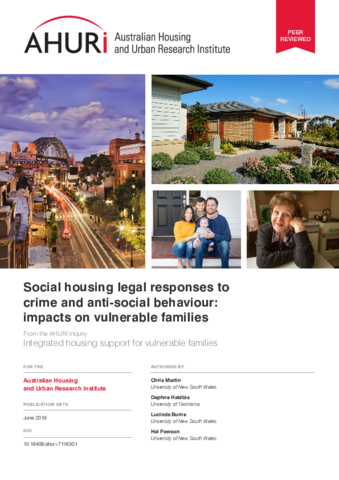From the AHURI Inquiry: Inquiry into integrated housing support for vulnerable families
This research examined social housing landlords’ legal responses to crime and anti-social behaviour by tenants, household members and visitors.
The research reviewed residential tenancies law and social housing policies in five Australian jurisdictions and national policy principles and frameworks relating to the four types of vulnerable persons and families: women, particularly as affected by domestic violence and other male misconduct; children; Indigenous persons and families; and people who problematically use alcohol and other drugs.
Social housing in Australia is targeted to households with low incomes and complex support needs. Lately, social housing policy has sought to give social landlords (i.e. government housing authorities, community and Indigenous housing providers) a larger role in relation to crime and non-criminal anti-social behaviour. Recent developments include ‘three strikes’ policies and legislative amendments intended to facilitate termination proceedings and evictions.
There are tensions between terminating tenancies and social housing policy objectives relating to individuals and family wellbeing. Termination proceedings may be brought in response to the misconduct of an individual person, but the outcome may affect a household, including partners, children and other persons not involved in the misconduct. Indeed, it may be that the tenant is not the instigator of the misconduct but is made liable for the misconduct of an occupier or visitor.
Policy development options include: separating offers of support from threats of tenancy termination, with referrals made earlier in a tenancy and support delivered by services at arm’s length from the landlord; giving tenants more certainty through commitments that no-one will be evicted into homelessness; ensuring proper scrutiny is applied to termination decisions and proceedings, and to sector practice; and reforming the law regarding tenants’ extended and vicarious liability for other persons.





